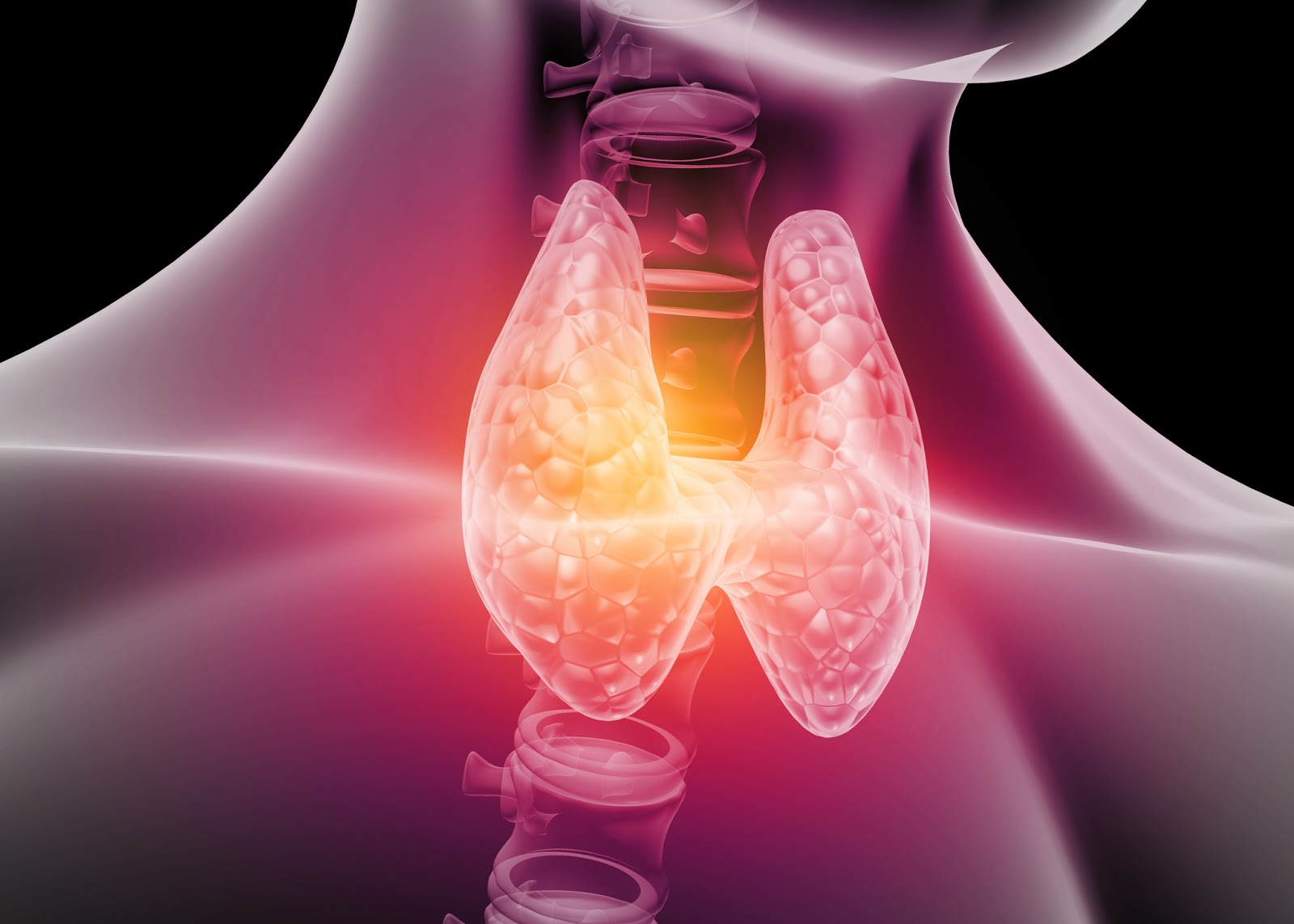What are early warning signs of thyroid problems?

What are early warning signs of thyroid problems?
It’s likely that you’ve heard of a thyroid, but you may be unsure what this butterfly-shaped gland does. Located in the neck, the thyroid helps to control and regulate your body’s metabolism using the hormones triiodothyronine (T3) and thyroxine (T4). However, when it is producing too much or too little of these hormones, you can develop one of two thyroid disorders: hypothyroidism (an underactive thyroid) and hyperthyroidism (an overactive thyroid). While these conditions can usually be resolved with medication, some of them can have an impact on your everyday life.
So before you’re officially diagnosed, what signs might indicate that you have a potential thyroid problem? Below, you can find the most common symptoms of both hypothyroidism and hyperthyroidism, and discover whether thyroid problems can be hereditary.
How do you know if you have a thyroid problem?
As already mentioned, there are two main thyroid conditions to be aware of. An underactive thyroid is caused by the underproduction of T3 and T4 hormones in the thyroid gland, and an overactive thyroid is caused by the overproduction of T3 and T4. Therefore, these two conditions can display very different symptoms, depending on which one you have. Thyroid problems can affect both men and women, though they are more common in women.
Symptoms of hypothyroidism
Hypothyroidism can develop slowly, which is why some people don’t realise there is a problem for a long time. The initial symptoms can include weight gain and fatigue. However, as the condition progresses or even worsens, you may also experience[1]:
- Dry skin
- Feeling cold or like you can’t warm up
- A puffy or swollen face caused by extra fluid
- Hoarseness
- Muscle weakness
- Increased cholesterol
- Muscle aches and stiffness
- Swollen joints
- Heavy or irregular menstrual periods
- Thinning hair
- Slowed heart rate
- Depression
- Impaired memory or “brain fog”
- An enlarged thyroid gland
It’s unlikely that a person will experience all of these, however if you do have a number of the above symptoms, you may wish to seek advice from your GP.
Symptoms of hyperthyroidism
Generally, the symptoms of an overactive thyroid will be the opposite of an underactive thyroid. They include[2]:
- Anxiety
- Weight loss
- Nervousness and irritability
- Trouble sleeping
- Mood swings
- Feeling too hot
- A fast or irregular heart rate
- Twitching or trembling
- An enlarged thyroid gland
Do you get a sore throat with thyroid problems?
A sore throat isn’t generally a sign of hypo or hyperthyroidism. Sometimes, however, when you have a sore throat as well as some of the symptoms listed above, you may actually be experiencing thyroiditis. This infection can cause pain in the throat, general feelings of ill health and can sometimes be confused with a thyroid hormonal imbalance[3]. If you think that you have this infection, then do seek advice from your GP.
What are the early warning signs of thyroid problems in females?
It’s important to recognise the signs of thyroid disease and know how they differ between men and women. In some cases, thyroid problems can be mistaken for symptoms of menopause or perimenopause, which can delay diagnosis. Additionally, women may be more at risk of developing thyroid disease after the menopause.
One type of thyroid disease that affects women is called postpartum thyroiditis[3]. This is an inflammation of the thyroid gland occurring in the aftermath of childbirth. In the first three to six months after giving birth, it can cause symptoms of hyperthyroidism. Then, from four to eight months after labour, it can cause symptoms of hypothyroidism. These symptoms of hypothyroidism can last for up to a year.
Women’s reproductive health can also be affected by thyroid problems in these three ways:
- Altered menstrual cycles (lighter/heavier flows, irregular cycles, amenorrhea, early menopause)
- Fertility issues (if ovulation is impacted)
- Pregnancy complications
Conversely, there are also some symptoms of thyroid disease that affect predominantly men. These include:
- Male breast enlargement (gynaecomastia)
- Low testosterone levels
- Hair loss or balding
- Loss of strength and/or muscle mass
- Reduced sex drive
Are thyroid problems hereditary?
Thyroid problems can be hereditary, however this is not always the case.
An underactive thyroid most often occurs when the immune system attacks the thyroid gland, prohibiting its hormone production[1]. While there are numerous reasons that can explain why the immune system reacts in such a way, it’s most commonly caused by Hashimoto’s disease. This disease can run in families, and therefore, if a family member has it, you are also more likely to experience an underactive thyroid as a result.
In a similar way, hyperthyroidism can be caused by Graves’ disease, another autoimmune condition that can cause the opposite issue to Hashimoto’s disease. According to the NHS, around four in five people who have hyperthyroidism have Graves’ disease[2]. But, it is unclear whether this disease can be passed down to other family members. It’s been found that the condition does tend to affect those in the same family, which hints that it is partially hereditary. As with hypothyroidism, external factors can also cause thyroid problems, such as some medicines that are used to treat an irregular heartbeat.
Occasionally, thyroid conditions can also be caused by trauma to the area, such as surgery. If this is the case, the condition wouldn’t be classed as hereditary.
If you experience some of the symptoms we’ve listed higher up in this article and a close family member has hypo or hyperthyroidism, you may wish to see your doctor, who could suggest a blood test to monitor your hormone levels.
Resources:
[1] https://www.nhs.uk/conditions/underactive-thyroid-hypothyroidism/
[2] https://www.nhs.uk/conditions/overactive-thyroid-hyperthyroidism/

